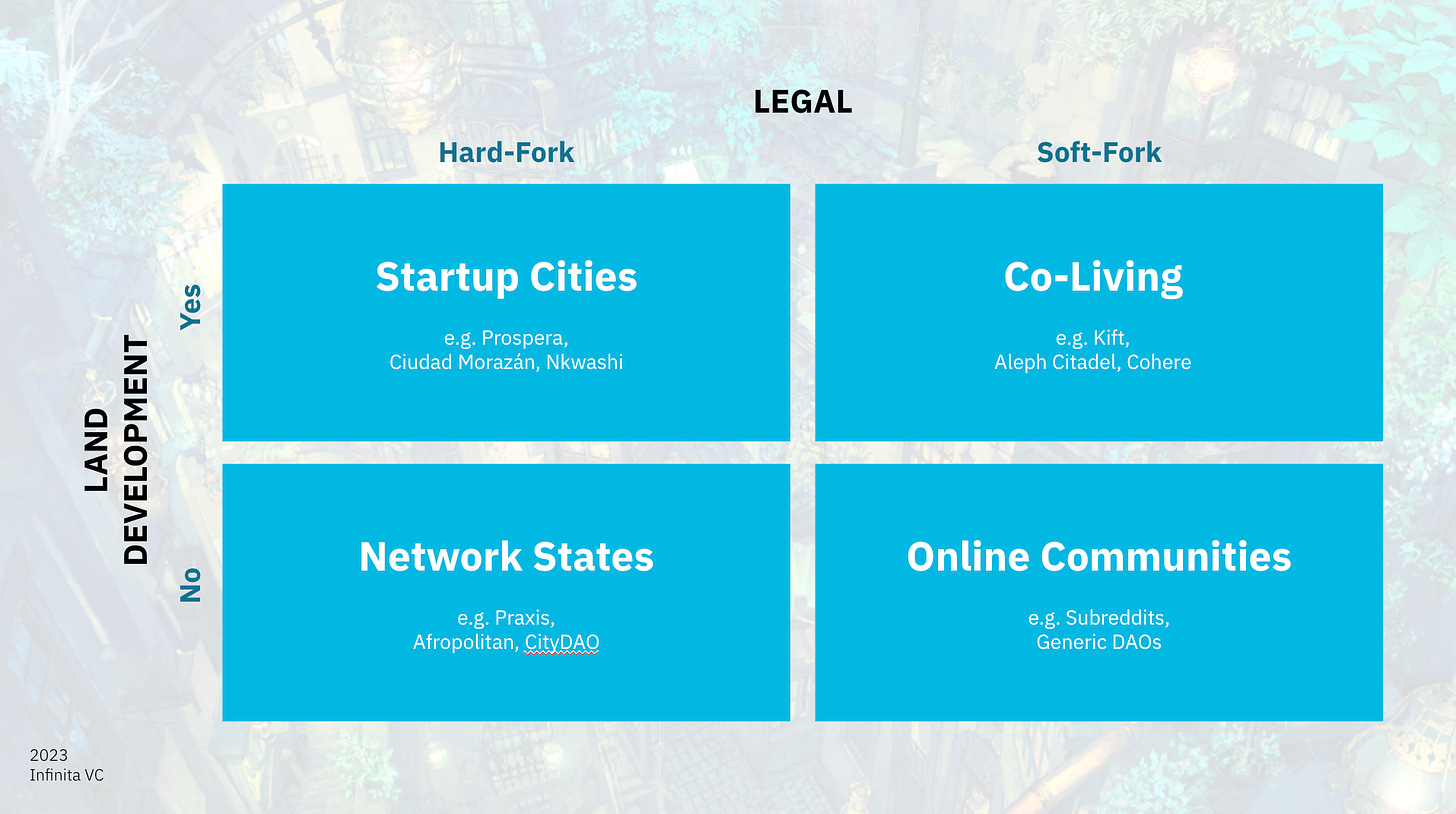Background
Balaji Srinivasan’s “The Network State” has attracted lots of attention. I have enjoyed the read and it’s a massive boost for a growing movement I feel part of.
Yet there seems to be a bit of conceptual confusion and fragmentation. I want to help reduce it, in order for this nascent industry to thrive.
To do so, I created an industry map that aims to show what startups or projects are part of this movement, and how they differ.
In a previous article, I explained the rationale to group projects together, ranging from new island micro-nations to software for legal disputes.
This is an update.
To state the caveats & biases again briefly.
I don’t aim to be definitionally accurate, but directionally insightful
I am a VC investing in technology startups - this is more a “startups map” than an “industry map”, e.g. innovative countries are legacy players in my view
I interpret Balaji’s “network state” as a strategy innovation to build better governance, using online/crypto combined with physical shells (cities); the network states on my map are probably not what Balaji means as an end state - rather, these follow the network state strategy or aim to build cities eventually
I live in Prospera, and I have skin in the game in its success
To iterate the categories again with comments.
Objections
Co-living: One strong pushback I got was from someone leading a project that I put in the co-living category who found this “reductionist”.
I am not yet convinced by the objection, since the project brands itself clearly as co-living and less so on the legal & governance transformation side.
I am open to changing my mind - and I plan to have a debate on my podcast with the person who voiced the objection to hearing their full viewpoint.
Prospera is a more complex structure too, not “just” a startup city. Their current branding suggests otherwise, so I may update accordingly once their branding is clearer (maybe in version 3.0) - otherwise, it would be confusing.
It seems to me that “reductionism” is a bullet I have to bite occasionally while trying to come up with a map with simple and neat categories.
I expected the biggest objection to be: “But those aren’t network states - no network state exists yet.” To which my response would be: “Network state is a strategy innovation in my interpretation.” Nobody has made the objection yet.
maybe wanna come on my podcast to debate my thesis?In the meantime, here is a new framework to clarify previous categories.
The Legal Forking 2x2 Matrix
Hard Fork vs. Soft Fork: is the project fundamentally changing laws and governance compared to its host country? Or does it work off of existing legal guardrails?
There seems to me a separator: co-living projects don’t aim to fork off the legal system or get a higher degree of legal autonomy - they work with what they find to realize a moral or governance innovation that doesn’t require more legal autonomy.
Land Development Yes vs. No: does the project develop land or has at least an MOU with an existing government? This seems clear and simple to me.
A comment on co-living: does this categorization make it seem “less transformative”? I don’t think so. These projects are in a way much more business-viable than the other ones and may for that reason have a higher chance at sustained success.
It is already a bigger industry - and the network state may as well be the transformation of this industry to reach higher goals.
What’s next? I still see edge cases and in-betweens - but I think we’re getting closer to developing a taxonomy of this new startup industry landscape.
What do you think?
Any more objections and invitations for debate are welcome. Check out my upcoming event schedule to meet in person, or DM me on Twitter.





"Black Rock City" please